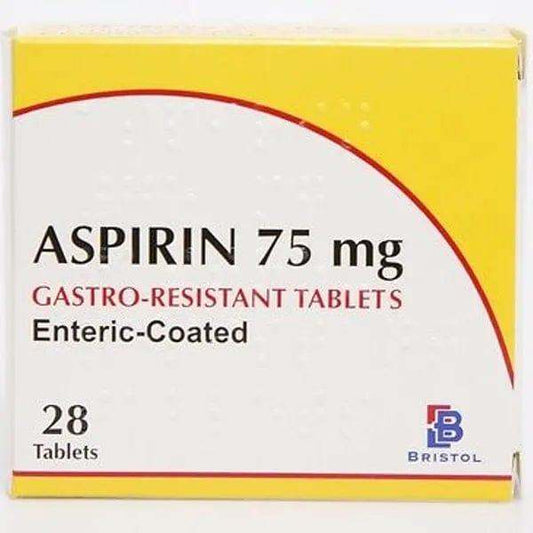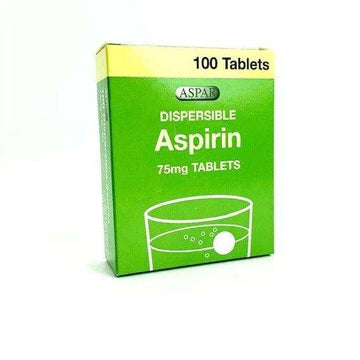Are you experiencing a chronic painful condition? Wait a minute and order from the Pain Relief Tablets & Painkiller Treatments collection from Welzo. These products help manage mild to severe pain, enabling users to achieve peace of mind with enhanced mobility and comfort. These medications help relieve pain, whether a person has post-exercise soreness, joint pain, menstrual cramps, or tension headaches.
These medications work by reducing pain signals, numbing the nerve and targeting the inflammation. Millions trust them in the UK. So, join the ranks of satisfied customers and order OTC pain relievers from Welzo now.
What are pain relief medications?
Pain relief medications are nonsteroidal anti-inflammatory drugs (NSAIDs), such as aspirin, ibuprofen and paracetamol. These medications promote recovery and help manage painful conditions. These medications are useful for all with various painful conditions, ranging from recurring back pain to severe arthritis.
They have good safety, and according to the NHS, NSAIDs such as paracetamol are effective and safe to treat pain when used correctly. They are effective for various pains such as muscle injuries, dental pain and headaches.
What are the most popular non-steroidal anti-inflammatory drugs (NSAIDs)
This collection has a variety of pain medicines; all tailored for a different pain type. They are available mostly OTC, which means they can be purchased without consulting a healthcare professional. Main types of pain relief tablets & painkiller treatments in this collection are;
-
Capsules & tablets for general pain relief, such as paracetamol, aspirin and ibuprofen
-
Effervescent/ soluble tablets that are fast-acting and stomach-friendly, such as Aspirin Dispersible Tablets
-
Topical creams & gels such as Ibuprofen Gel, Phorpain Gel, etc.
-
Transdermal patches that target muscle and joint pain and suit various painful conditions such as osteoarthritis & sciatica.
-
Combination types, such as co-codamol, contain a combination of codeine and paracetamol for stronger efficacy, even against brain and spinal cord pain.
Deep freeze sprays are also excellent for relieving mild to moderate pain. Visit us to know about the Best Deep Freeze Sprays in 2025 for Pain Relief.
Benefits and Uses of Pain Relief Medication
In contrast to other medications, such as prescription pain killers, the NSAIDs do not alter the blood pressure. Their major health benefits are;
-
They ensure an effective and fast pain relief from aches and pains
-
They support daily functionality and motility while recovering from an illness
-
They reduce muscle soreness and inflammation associated with various health problems
-
They ease discomfort and muscle aches to ensure a restful sleep
-
They are tailored to all sorts of uses, such as topical and oral products
Why does Welzo select pain relief medications?
Welzo has selected these pain relief medications to manage pain. They are,
-
Clinically proven ingredient profile: They have evidence-backed ingredients that are well tested for their safety and efficacy.
-
Certified quality: They strictly comply with UK regulatory standards such as GMP certification.
-
Excellent therapeutic coverage: They are effective against various types of pain, from major to minor, such as chronic pain, period pain, and joint pain. They also treat depression and have no withdrawal symptoms. They are also safe for nervous system.
-
Targeted and quick relief: These medicines ensure a quick relief from both systemic and localised pain, such as rheumatoid arthritis.
-
Professional trust: They are reliable and are trusted by healthcare professionals worldwide for mild to moderate pain. There is thus little need for a physical examination before using them.
How to use pain relief treatments?
The usage guidelines depend on the route of taking medicines and the types of medicines. It is advised not to drink alcohol with these over-the-counter NSAIDs.
-
Capsules & tablets: They are taken with water and commonly after taking food to avoid stomach problems. The standard dose is to take 500mg paracetamol (NSAIDs) every 4-6 hours and a maximum of 4g daily.
-
Soluble/ effervescent tablets: In contrast to other medicines, they are good for quick absorption and quickly block the pain messages. They should be used immediately after dissolving in water.
-
Topical gels: They are easy to apply on unbroken skin at least 2-3 times daily.
-
Herbal remedies and patches: They are easy to apply to dry and clean skin and should be left in place for a specific duration.
Quality and Certifications of pain relievers and other complementary treatments
Welzo has included these medicines in its inventory as they strictly comply with various quality tests and are certified by;
-
UK regulatory compliance with the General Pharmaceutical Council (GPhC), UK Accreditation Service (UKAS) and Care Quality Commission (CQC).
-
Follow guidelines set by the FSA (Food Standards Agency) and the MHRA
-
Certified for Good Manufacturing Practice (GMP), ISO 22000 and ISO 9001
-
Independent laboratory certified by UKAS-accredited labs
-
They are evidence-based with clinical oversight by EFSA, NHS and NICE-certified healthcare professionals.
-
Properly tested ingredients for traceability and purity using techniques such as HPLC for contaminants such as heavy metals.
Reviews
Our pain relief products are best reviewed and top-rated by clinicians and users alike. There are dozens of reviews available for each product. Some examples are mentioned here.
Geoff Kay, a Welzo verified client, has reviewed Paracetamol 500mg Tablets as;
"What can I say about paracetamol, it’s the first line of defence for most people. Welzo is a really easy/ responsive shopping channel."
Martyn Inglis, another verified Welzo client, has remarked about Ibuprofen 400mg Tablets as;
"Brought to help with shoulder pain at night. They have helped me get more sleep, which I'm glad of"
Alison Crathorne, a Welzo client, has remarked about Ibuprofen 50g Gel as;
"This Ibuprofen gel is the best I have ever used for my pain and ache relief. I won't use any other."
People Also Ask
What are the safe over-the-counter painkillers for pregnancy?
Acetaminophen (or paracetamol) is the safest and first choice painkiller to be used during pregnancy. It should, however, be used for the shortest possible time.
What are the best painkillers for chronic pain?
Key elements of a pain relief strategy are medications, physical therapies (exercises, hydrotherapy, massage and cold packs), body and mind techniques (e.g., acupuncture), community support groups and psychological therapies such as meditations.
What is the best tablet for moderate pain?
The 'best' tablet depends upon the type of pain. For regular and inflammatory pain, NSAIDs, such as paracetamol, are very effective. Stronger prescription medications, such as codeine, are needed for severe pain.
What are the uses of Opioid painkillers?
Opioid painkillers include prescribed antidepressants and painkillers such as codeine, morphine and fentanyl. They are mostly prescribed to treat more severe pain.
Disclaimer: This information is just for educational purposes only. It is not a substitute for expert medical advice. Consult a healthcare provider for more precise guidelines.

























 Rated Excellent by 26,523+ Reviews
Rated Excellent by 26,523+ Reviews